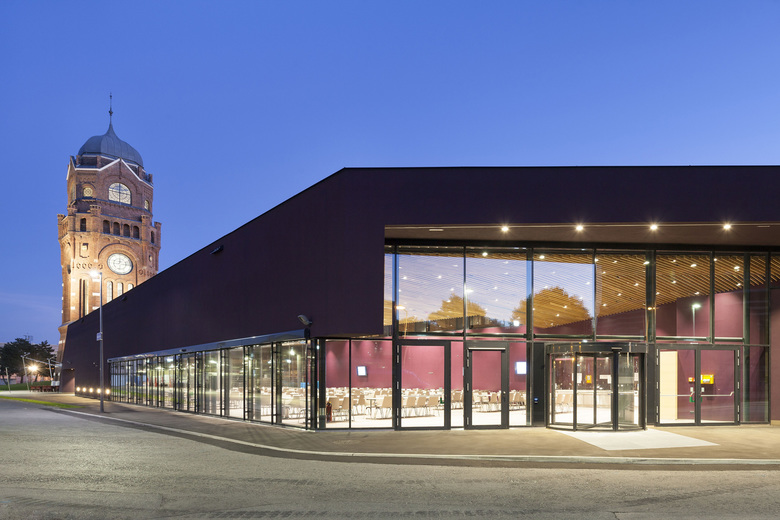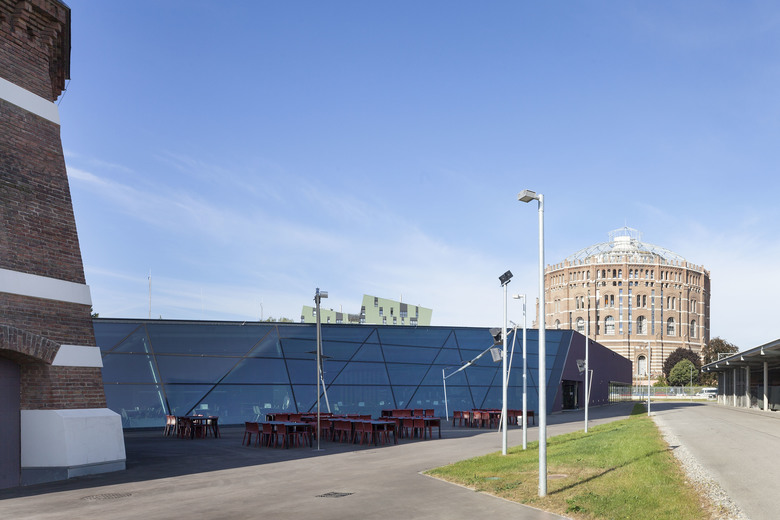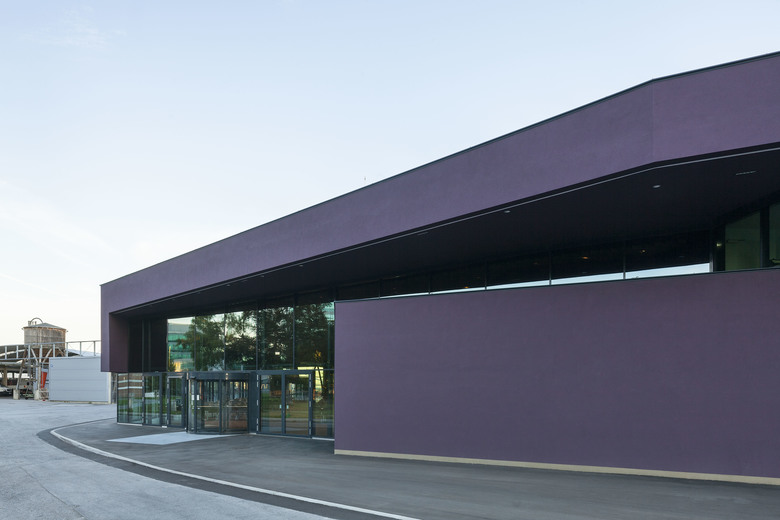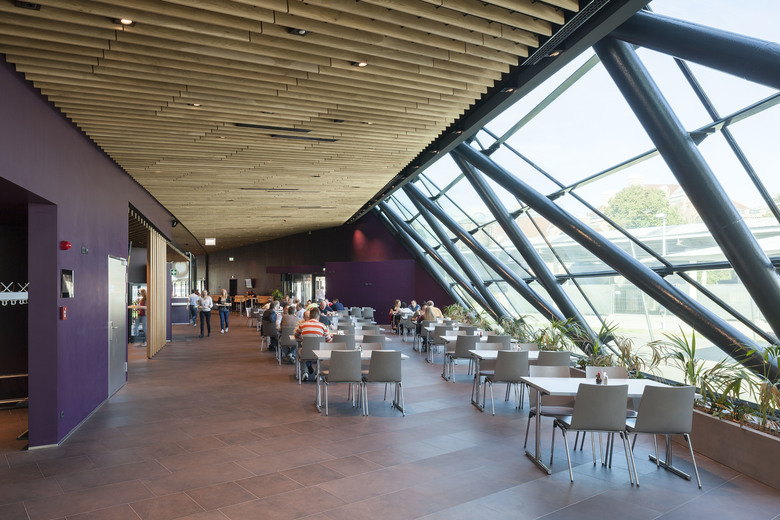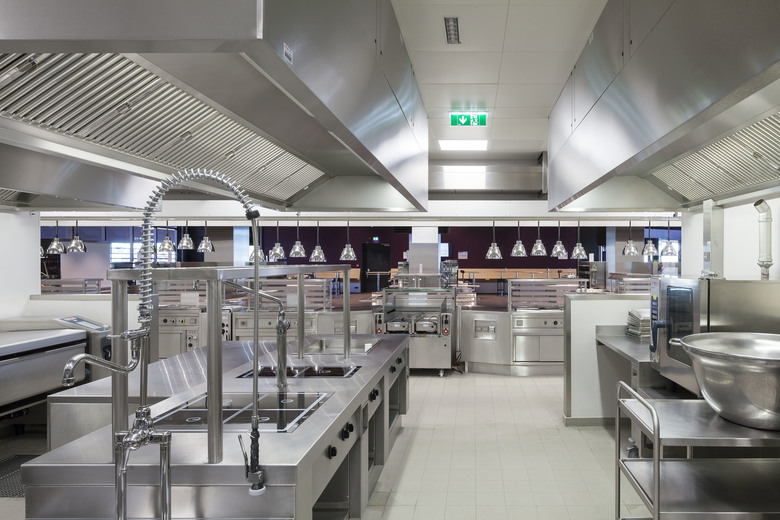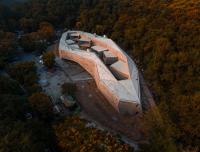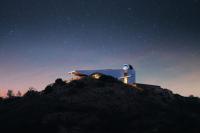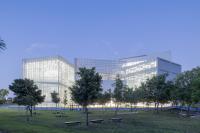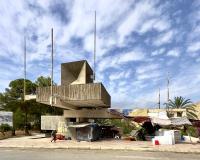Netzkulinarium
Wien, Austria
The staff restaurant of the Wiener Netze, known as Netzkulinarium, sees itself in a wider sense as a communication centre for the business and consequently forms an important part of a larger, continuous business area, which has achieved considerable importance through the erection of the company headquarters on the property.
The building is symbolically located in the space between two very special monuments of the public utilities network: the gasometer and the water tower. Between these two poles the building extends in the form of a single-storey structure. To enable guests experience the relationship between these two monuments and the new building’s relationship to both of them, the dining and cafeteria area stretches through one entire long half of the building and opens principally towards these historic monuments.
From this basic principle a system of parallel zones was developed: the entire service area –delivery area, storage spaces and an extensive kitchen – was conceived as a logical, linear track. The free-flow area (where meals and drinks are served) functions as a joint and a connecting element between the two zones.
A special response is made to the water tower, which was included as part of the brief: the new building tapers as it follows the angle of the visual axis to the tower which the brief called for, in the process impressively revealing a view of the tower and creating a kind of public space in front of it. Particularly during the warmer part of the year people like to use this space as a dining terrace.
Nevertheless, the water tower remains connected to the new building so that it can be functionally integrated. The tapering cafeteria wing that slopes down to the green space surrounds the tower at its base, while still demonstrably detaching itself from it by means of a glass joint. Through this top-lit intermediate space you reach the interior of the tower, which can then be climbed by an internal staircase.
Two approaches to two different commissions, a staff restaurant / communication centre and a water tower that is a listed monument, are here blended to form a single entity.
- Architects
- Pichler & Traupmann Architekten
- Year
- 2016
- Client
- WIENER NETZE GmbH
- Architecture
- Pichler & Traupmann Architekten
- Design Team
- Christoph Degendorfer, Bartosz Lewandowski
- Project Team
- Wolfgang Windt (Projektleiter), Carmen Deisenhammer, Andrea Ehrenreich, Klemens Gabriel, Joachim Kess, Marvin Seifner, Steve Sti
- Competition
- 1. Prize
- Size
- 3.260 m²
